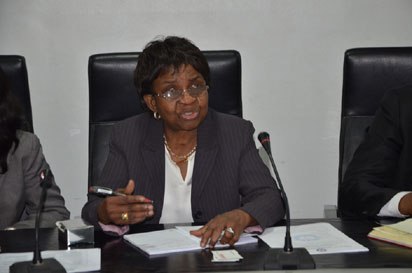Adeyeye said that there were about 2.5 million seizures of codeine made across the country, adding that the government is working out compensations for the affected companies. “It is about a year ago when the documentary about codeine was made which led to the Ministry of Health banning the product. “Since that time, we have been having a series of meeting with many government agencies and committees such as National Security Adviser group, the Presidency and the Ministry of Health.
“The final point is that we recalled about 2.5 million bottles of codeine and then put them on hold. This is sad because some companies did not commit the crime.“So we put all the codeine on hold including the powder that they are using to the syrup. It will cost about N1 billion plus to reimburse these manufacturers,” she said. Adeyeye said that the government was already working on the reimbursement plan, adding that the agency is working round the clock to stem the manufacturing, distribution, and use of substandard and fake drugs in the country. “We are working on whatever the Ministry of Health is doing now to reimburse those companies affected. We just called a meeting about the last two weeks on it.
“The amount that is tied to the companies and they will be reimbursed because most of them legally produce the product in spite of the bad distribution channels. “In tackling fake and substandard products, we do raids and many a time, our staffs don’t sleep, they keep vigil, mainly to intercept those drugs in concert with the Nigerian Customs Service. “We are also working with the local manufacturers to make sure that their products attain the international standard,” she said. On the fake news attributed to NAFDAC that 70 percent of medicines in Nigeria are fake, Adeyeye said that the legal department of the agency would see to it.
She said that a study jointly carried out by NAFDAC, the World Health Organisation (WHO) and the Department for International Development (DFID) in 2005 revealed that fake medicines stood at 16 percent. She added that a survey conducted by NAFDAC in 2017 and 2018 on some widely used drugs showed that Nigerian medicines were 98 percent wholesome. She, therefore, described the report as “untrue and grossly inaccurate”.
Source: Vanguard

 Prof. Moji Adeyeye, the Director-General, National Agency for Food and Drug Administration and Control (NAFDAC), on Monday said the Federal Government would pay more than N1 billion as compensation to the companies that had their codeine impounded more than a year ago.
Prof. Moji Adeyeye, the Director-General, National Agency for Food and Drug Administration and Control (NAFDAC), on Monday said the Federal Government would pay more than N1 billion as compensation to the companies that had their codeine impounded more than a year ago.




